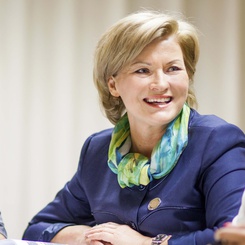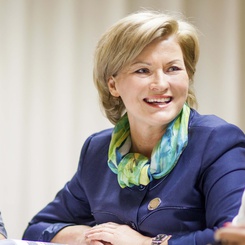The idea that businesses should be accountable to more than just their shareholders is nothing new. That said, and especially since 2009, this notion of responsibility has become more engrained than ever in our business lexicon and it’s become downright fashionable for companies to flaunt their societal and environment commitments. But how do these promises and good intentions translate into action?
“Many companies talk about CSR, but at a global scale, strong collective actions remain the exception,” says Stefan Gröschl, co-Director for the school’s Chair for Leadership and Diversity. “Doing Business can’t be one-size-fits-all because the financial and moral crisis, and the ensuing leadership void have changed the name of the game.”
His new book – Uncertainty, Diversity and the Common Good – tackles the fundamental questions: how can we change norms and usher in a new leadership paradigm?
EK: What’s keeping companies from being more responsible?
SG: I think the terminology is a first obstacle. Concepts like responsibility are notoriously hard to define because they are so complex. Who needs to feel responsible and towards whom? On what grounds? How far does that responsibility go down the supply chain? What actions does responsibility imply?
I think that’s why it’s important that this book takes a multifaceted approach to confront a multifaceted and complex problem. Contributors include strategists, philosophers and economists as well as experts in public policy, ecology and business ethics, hailing from all around the world. Engineers and Economists have their analyses and their graphs. But psychologists, sociologists and philosophers bring their understanding of values and mindsets to the table, which are also very important. Only when we take a holistic approach can we really create change.
Who is driving this change or transformation?
Real change is being encouraged at the individual level. While many business leaders outsource responsibility to their CSR departments or consider it as an image campaign for their marketing and PR departments, decision makers such as Paul Polman (CEO of Unilever) have a very personal engagement in the idea that we have to take care of what we leave to future generations.
Empowering individuals, stimulating diversity, encouraging out of the box thinking as well as being authentic and transparent, and having a perspective of things and beings which is holistic, systemic and long-term oriented is not an add-on, rather the basis for becoming a more responsible leader and decision-maker with the quest for a more sustainable future. This book contributes to this discussion with a pallet of thoughts, concepts, methods, views, ideas and inspirations.
At the end of the day, responsible individuals – and responsible leaders – are helping to set off a kind of necessary domino effect: as one company adopts practices of a greater sustainable and responsible nature, others may feel public and competing pressure and follow suit. But until we really enter into a new responsible leadership paradigm, many companies will continue to find loopholes to policy measures, and we’ll continue to sidestep the real issues. In other words, we might create individual freedom in the short-term that only leads to a collective ruin in the long-term.
EK - How do we build this new paradigm?
The aftermath of the financial and moral crisis created a leadership void that we are going to have to fill. Uncertainty, Diversity and the Common Good discusses what this new paradigm might look like, offering models and case studies, and could be used as a tool for leaders who are looking to adapt a more responsible leadership style. Doing well needs to be a means to an end, not an end in and of itself.
Business schools have an important role to play here: I think we have the responsibility to expose our students to as many perspectives as possible and adopt this holistic approach to management. In the final part of the book, two contributors address the duty of educators to develop and train future managers and leaders with more responsible mindsets.









